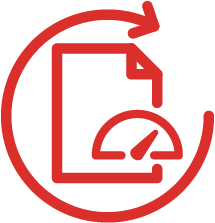 The April 1 updates to 12 CFR part 226—TILA (Regulation Z) will have a profound impact on how mortgage originators operate, including how settlement services are paid. Presently, it’s common for loan originators to pay for certain settlement services, including credit reporting services. This is often done by credit card. The Federal Reserve in commentary has indicated this practice will be prohibited under the new loan officer compensation rules…
The April 1 updates to 12 CFR part 226—TILA (Regulation Z) will have a profound impact on how mortgage originators operate, including how settlement services are paid. Presently, it’s common for loan originators to pay for certain settlement services, including credit reporting services. This is often done by credit card. The Federal Reserve in commentary has indicated this practice will be prohibited under the new loan officer compensation rules…
30. Loan originator payment of third party fees – May a loan originator pay some or all of the third party fees of a consumer or otherwise credit the consumer out of his own pocket?
No. An originator may not pay third party fees out of his or her own pocket. This amounts to varying the loan originator’s compensation based on the terms or conditions of the loan. The Commentary accompanying the rule at section 226.36(d)(1)-5 prohibits such action by loan originators.
This is seemingly in conflict to the Federal Reserve’s repeated position that bona fide, pass-through, third party fees are not counted as compensation under the rule (226.36(d) and (e).) Without regard to the conflict, the Federal Reserve’s interpretation on originators paying settlement service costs is clear – It’s prohibited. Similar restrictions are also contained in the Dodd-Frank Legislation (see pages 764 and 765.)
These restrictions apply in cases where the payments would violate the loan originator compensation rules. Costs associated with applications that do not result in closed loans and compensation to the originator do not appear to be covered under these rules and can therefore be paid directly by the loan originator if so desired. An originator can continue to initially pay for any/all settlement service costs, but must be reimbursed in full by either the consumer or creditor on loans that close in which the loan originator receives any compensation.
Credit Technologies provides multiple ways in which to comply with these new restrictions and still provide our clients the maximum amount of flexibility in processing settlement service costs. These options include,
- Direct Consumer Payment – Via credit card, ACH or check including title checks issued at closing.
- Creditor / Branch Billing – Net terms account, credit card or ACH transaction.
- Loan Originator / Consumer Hybrid Payments – The originator can establish a billing account or place a credit card on-file to initially pay for any/all transactions. This includes credit reporting, 4506T tax services, flood, AVM and any other provided settlement services. Thereafter, the originator has the option of entering the consumer’s credit card to pay for those and any subsequent charges* in compliance with the Act.
- Loan Originator / Creditor or Branch Hybrid Payments – The same functionality listed above also allows the Loan Originator to initially pay for all transactions. The Creditor or Branch can then later reimburse the loan originator on those files that close.
For more information on this, or any Credit Technologies product or service – Please call 800.445.4922 or visit us on the Web at www.CreditTechnologies.com.
*Excludes credit rescoring costs. The Credit Repair Organizations Act and repository regulations prohibit consumers from being charged either directly or indirectly for credit report and/or score improvement.
DISCLAIMER
The opinions expressed are those of Credit Technologies, Inc., were not written or reviewed by an attorney and do not constitute legal advice. As State laws vary widely. The options listed may not be permitted in your venue. Options may also vary based on account/user settings and Loan Origination Software limitations. As with all regulatory issues, you are strongly encouraged to consult with your compliance / legal staff to determine legality and suitability to your specific operations and venue.







































